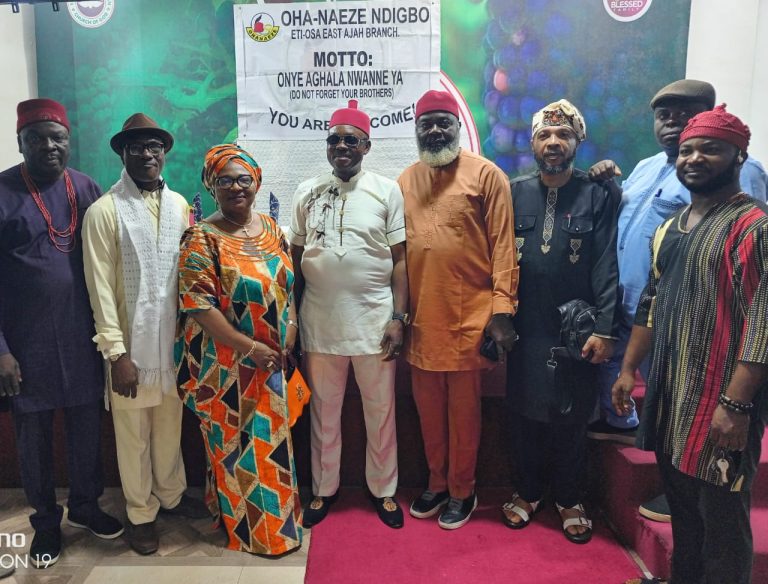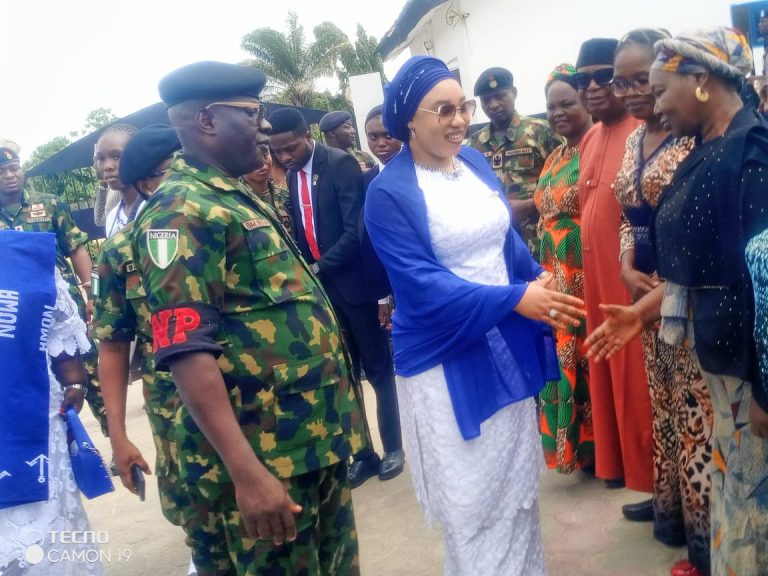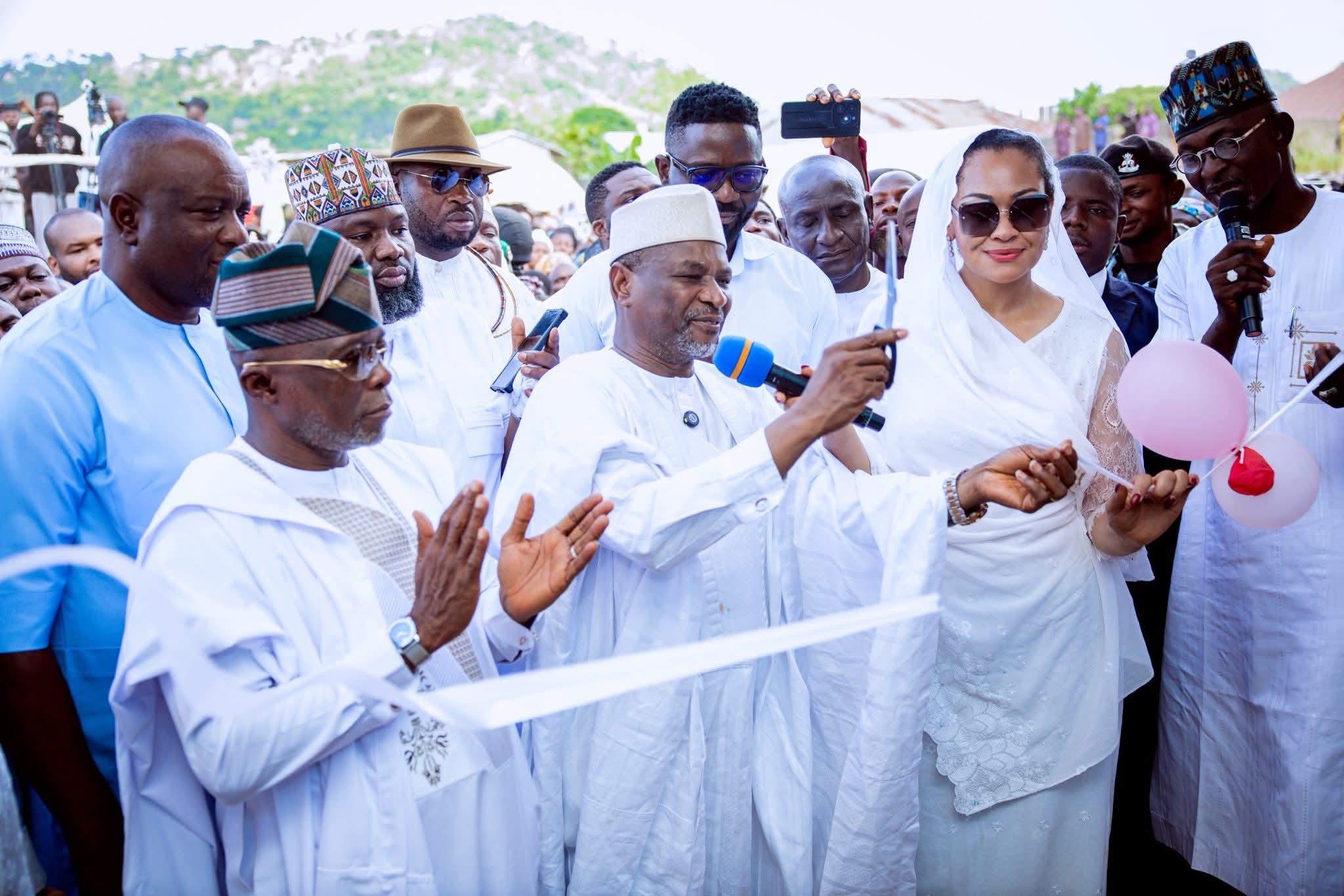
By Ikechi Enwereji
When Senator Natasha Akpoti-Uduaghan stepped up to the podium in the heart of Kogi Central, a hush fell over the gathering. The air was thick with expectation — not just because she is one of Nigeria’s most talked-about female lawmakers, but because her story has come to symbolize resilience, courage, and people-centered leadership in a political terrain often defined by self-interest and survival.
“Two years ago,” she began, her voice steady yet laced with emotion, “you gave me the sacred trust to represent you in the Senate of our great nation. Today, I stand before you, deeply humbled and eternally grateful for that faith.”
It was more than a speech — it was a homecoming. A communion between a leader and her people, bound by a shared journey through storms and triumphs.
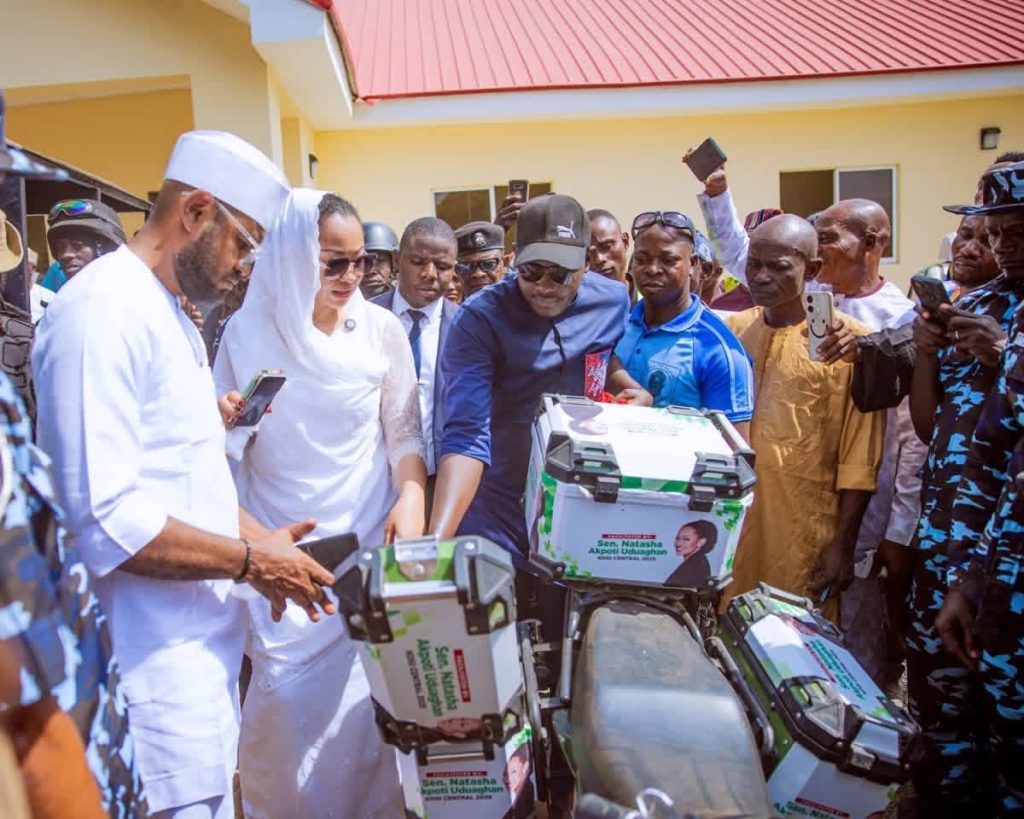
A Senator Forged by Adversity
Few Nigerian legislators have faced as turbulent a first term as Senator Natasha Akpoti-Uduaghan. Six months into her tenure, she was hit by what she described as “an unjust suspension” — a political blow that could have easily silenced a lesser spirit. But instead of retreating, Natasha turned her ordeal into a rallying point for service.
“Through it all,” she told her audience, “we stood firm — guided by truth, justice, and the collective dream of a better Kogi Central.”
Her constituents did not just sympathize; they fought back. They resisted what she called “a despicable ploy” to recall her from the National Assembly. Their solidarity became her anchor — and her renewed source of strength.
“That experience birthed in me a deeper commitment,” she recalled. “A pledge never to make my people suffer with me, never to make them feel less than other districts in Nigeria, and never to make them lose hope in federal inclusion.”
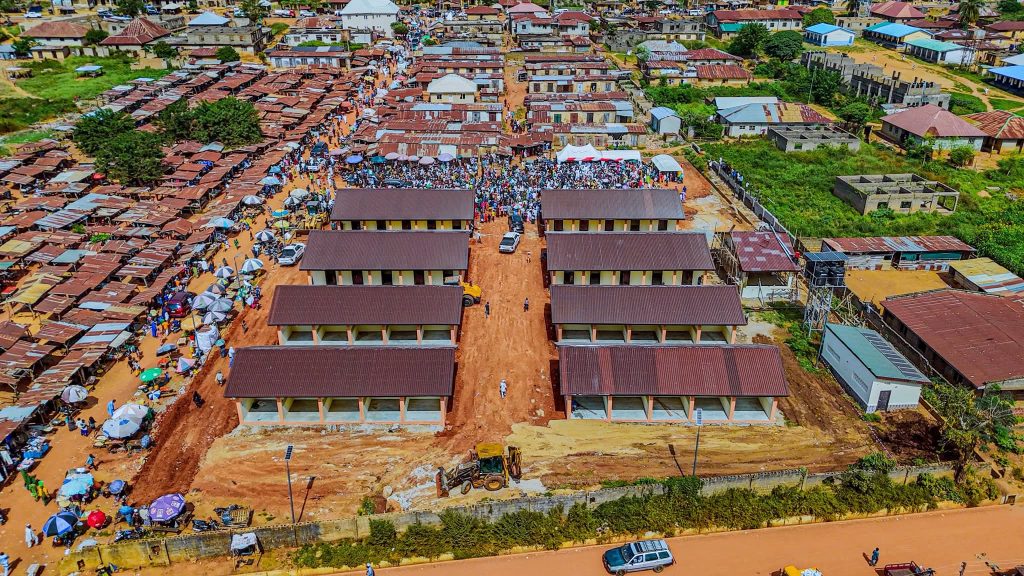
Building Communities, Not Just Constituencies
If Natasha’s suspension was meant to slow her down, the evidence on the ground suggests the opposite. From infrastructure to empowerment, the past two years have seen a transformation in the five local government areas that make up Kogi Central — Okene, Adavi, Okehi, Ajaokuta, and Ogori-Magongo.
In Okene and Okehi, two modern markets now stand as symbols of her grassroots development vision. Each one features 80 shops, an abattoir, electricity, running water, and toilets — providing thousands of traders, especially women, with a dignified space to earn a living.
In the remote Fulani settlement of Osaka/Abobo in Adavi LGA, where children once studied under makeshift shelters, Natasha built a brand-new primary and secondary school, complete with teachers’ quarters, electricity, and water supply. “Every child deserves a chance to dream,” she said, her voice softening. “No community should be too forgotten to matter.”
Access to water, long a challenge in the dry, rocky terrain of Kogi Central, has seen a revolution under her watch. Fourteen solar-powered water reticulation systems, each capable of holding up to 50,000 litres, now serve multiple communities across the district. From Ajaokuta to Obangede, clean water is no longer a luxury but a basic right restored.
And when the sun sets, the lights come on — literally. More than 2,000 solar-powered streetlights now illuminate roads, markets, and homes in Ajaokuta, Adavi, Okehi, and beyond. For the first time in years, traders can work late, children can study outdoors, and residents can walk home safely after dark.
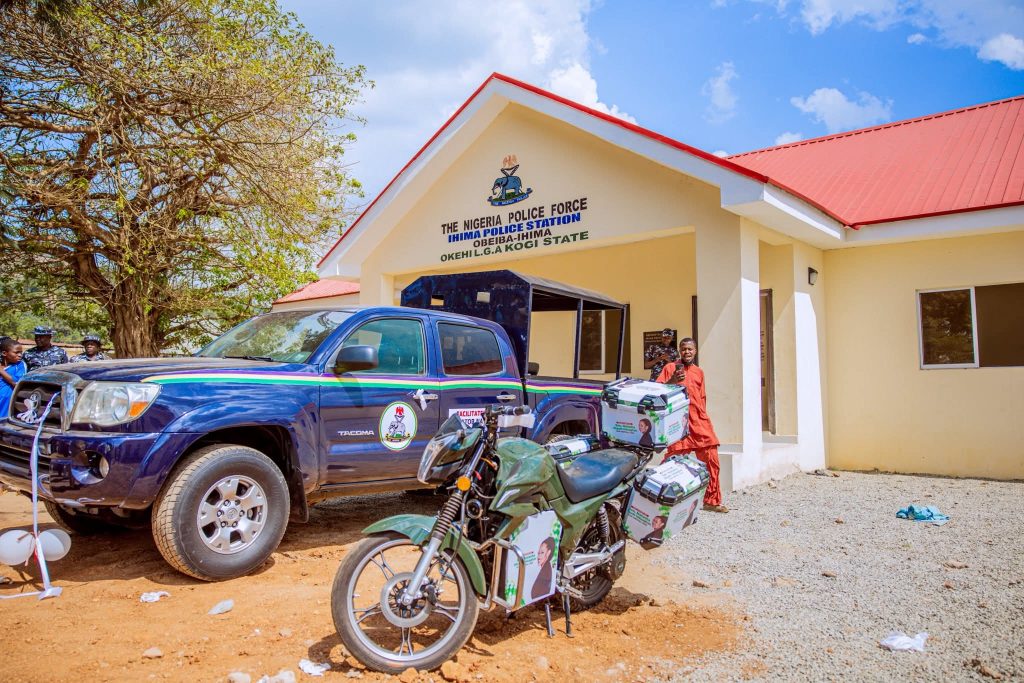
Security, Power, and Progress
Senator Akpoti-Uduaghan’s vision extends beyond social welfare. Recognizing the link between security and development, she facilitated the construction of police housing quarters and the donation of a patrol van and electric speed bike to Ihima Police Station — a gesture that has improved morale among local officers.
Power supply, too, has received attention. She distributed eight brand-new 500kVA ABB transformers across the five LGAs, a crucial intervention that has boosted small-scale industries and improved quality of life in several communities.
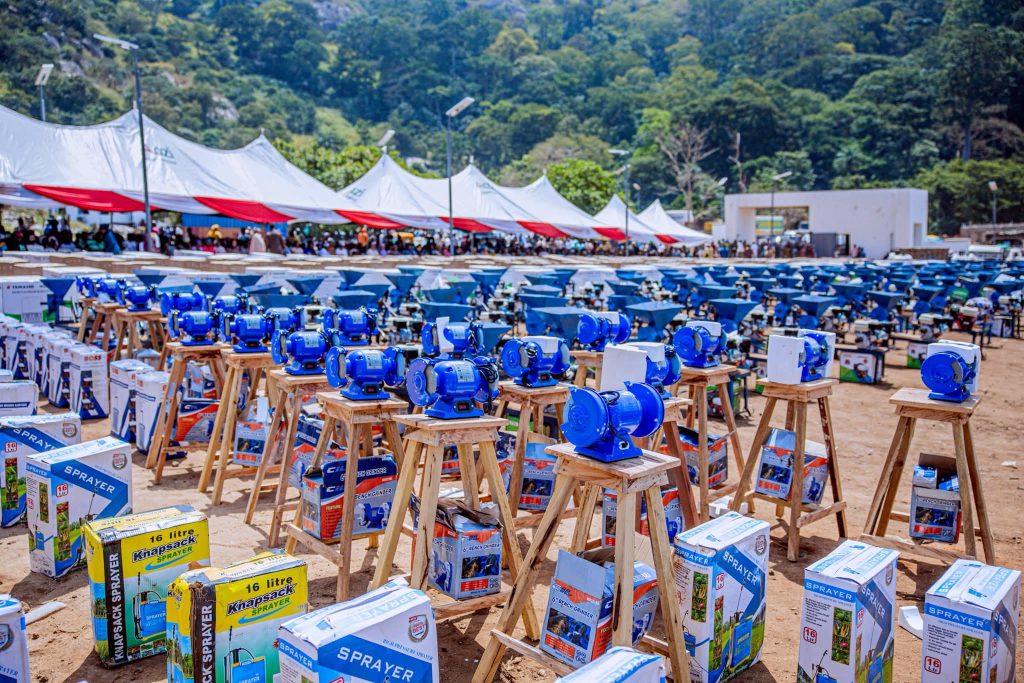
Empowering Dreams, Transforming Lives
At the heart of Natasha’s work lies a passion for empowerment. In what she described as a “mega empowerment initiative,” 2,000 constituents benefited from trade-enhancing tools — including solar-powered vehicles, deep freezers, gas cookers, sewing machines, cobbler kits, grinding machines, and fish ponds.
“These are not just handouts,” she explained. “They are investments in dignity and productivity.”
Even in the heat of her suspension, her office facilitated the training and empowerment of 230 women and youths — providing them with 80 DJI drones, 50 HP laptops, 50 renewable energy tools, and 50 welding and fabrication kits. “Innovation must not be a privilege,” she emphasized. “It should be the foundation of our future.”
In July 2025, she was also instrumental in commissioning an NLNG-donated General Electric CT Scan at the Federal Medical Centre, Lokoja — a critical boost for healthcare delivery in the state.
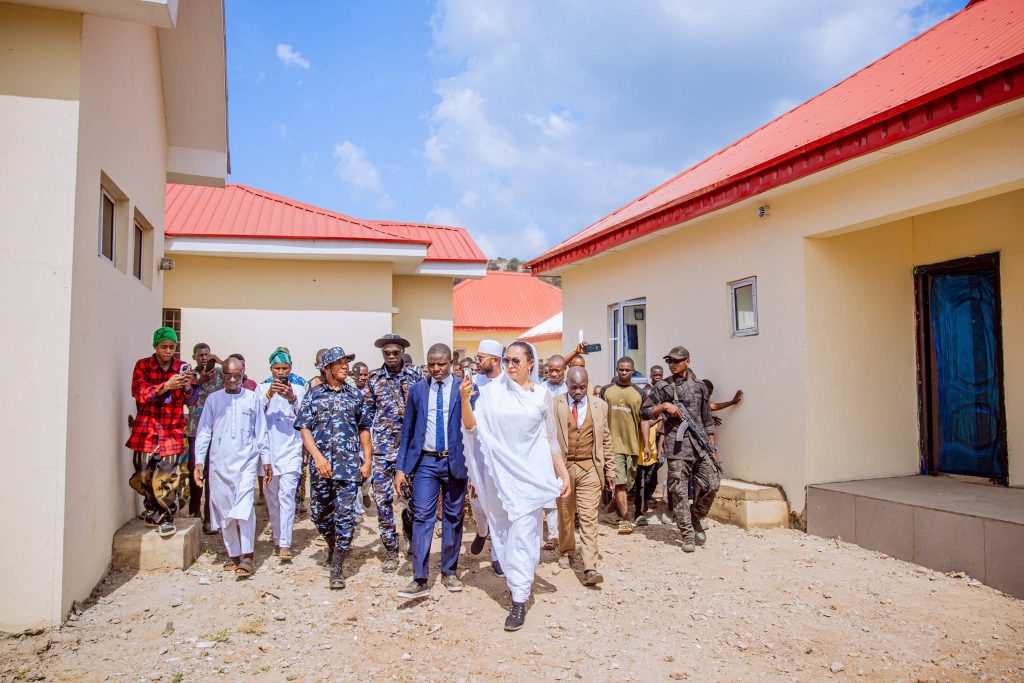
The Kogi Central People’s Company: A Legacy in the Making
Beyond projects and policies, Senator Akpoti-Uduaghan is setting up structures that will outlive her political tenure. One such initiative is the Kogi Central People’s Company Limited by Guarantee — a community-owned development model inspired by the “People’s Association of Singapore.”
“The idea,” she explained, “is to institutionalize communal ownership and ensure that the people themselves manage and sustain the assets created in their name.”
The company will oversee investments, manage community assets, and drive charitable interventions across the five LGAs — ensuring that development becomes a collective enterprise, not a government gift.
Legislating with Compassion
In the National Assembly, her work continues to reflect empathy and foresight. Among her notable legislative efforts is the Bill for the Establishment of a National Autism and Neurodevelopmental Centre — a landmark initiative aimed at giving children with special needs the support and dignity they deserve.
“Every Nigerian child, regardless of ability, deserves inclusion and care,” she said, echoing her advocacy for social equity.

Faith, Family, and the Feminine Spirit of Leadership
Behind her public achievements lies a private story of strength and balance. In her speech, she paid tribute to her husband, Chief Emmanuel Uduaghan, for his “love, patience, and quiet strength.” Their partnership, she said, has been a pillar through the trials of public service.
She also credited her faith as the compass that has guided her path. “Through every challenge and victory, God’s grace has been my anchor,” she declared, her voice breaking slightly as the crowd murmured in agreement.
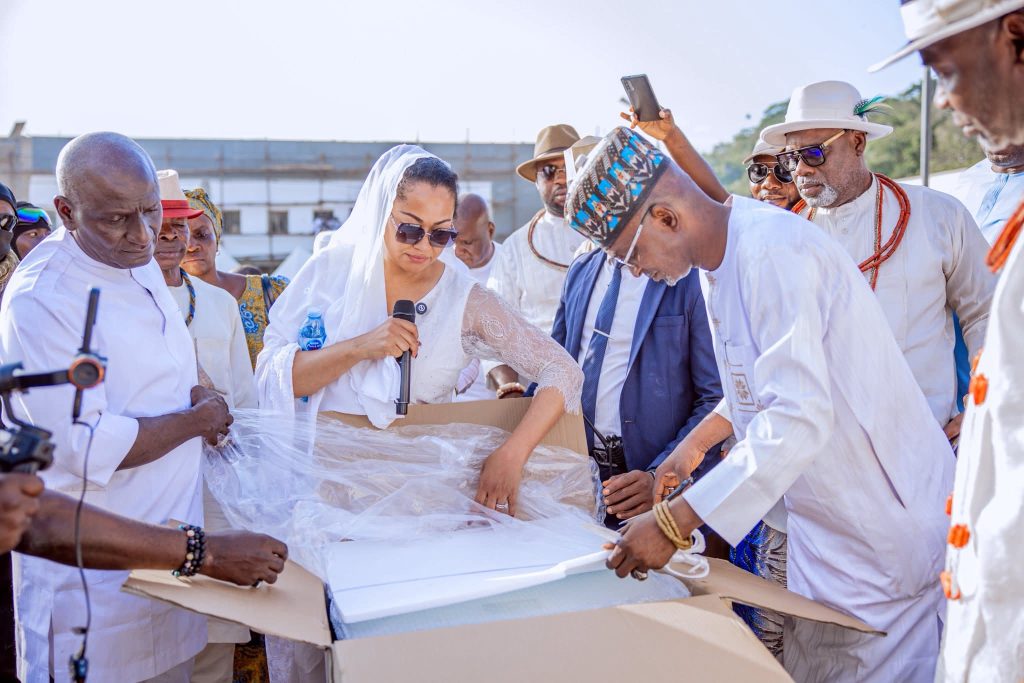
A New Chapter of Hope
As her two-year reflection drew to a close, Senator Natasha Akpoti-Uduaghan turned her focus to the future — one grounded in accountability, accessibility, and action.
“My mission is not just to represent Kogi Central in Abuja,” she said, “but to ensure that every policy, every budget, and every reform reflects the heartbeat of our people.”
To the women and youths who look up to her, she offered words of affirmation: “Never doubt that your voice matters.”
And to the elders who stood by her during her darkest hours, she whispered, “Your prayers have carried me farther than you can imagine.”
Her final words brought the crowd to its feet:
“This celebration is not about me; it is about us — about the journey we have begun and the future we are building together.”
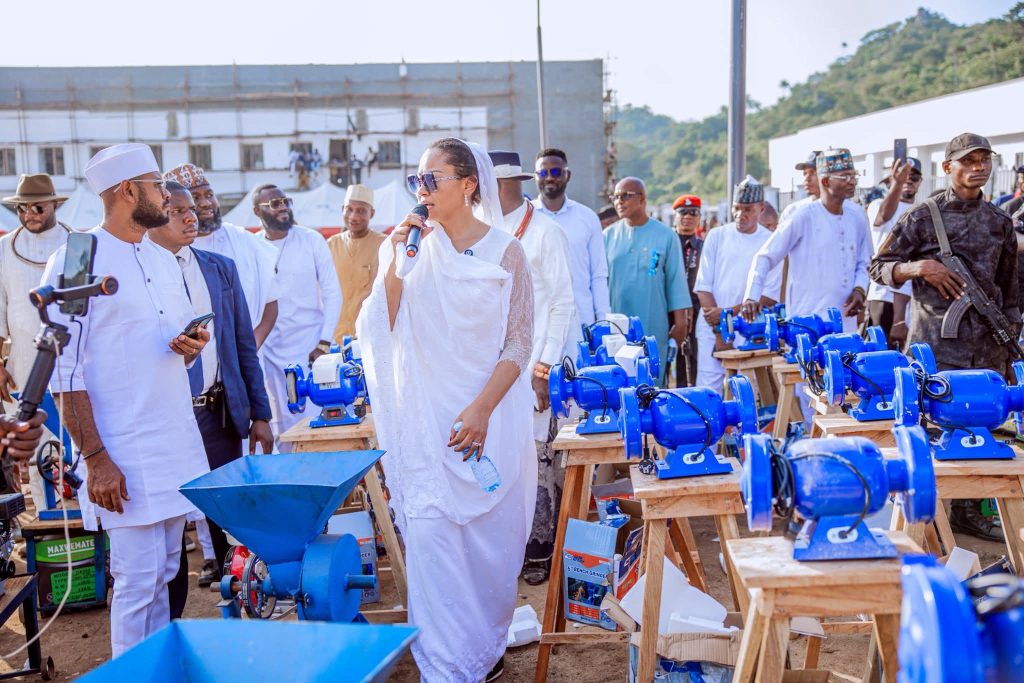
Legacy of a Fighter, Heart of a Servant
In an era where politics is too often defined by noise and self-interest, Senator Natasha Akpoti-Uduaghan’s story stands out as one of purpose, perseverance, and people. She has turned personal trials into public triumphs, using adversity as fuel for service.
For Kogi Central, she is more than a senator — she is a symbol of what resilience can achieve when rooted in love for community.
And for Nigeria, her journey is a reminder that when leadership meets conviction, even the fiercest storms can become stepping stones to history.


